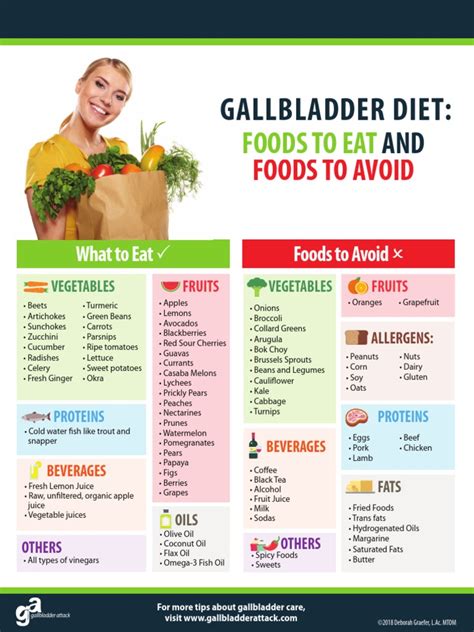If you're reading this, chances are you or someone you love is grappling with gallbladder issues – be it gallstones, inflammation, or post-surgery recovery. I remember the dizzying days post-diagnosis, sifting through conflicting advice, wishing I just had a clear roadmap. It felt overwhelming to figure out what to eat, what to avoid, and how to make meals enjoyable again. That's why I’ve poured my own journey and research into creating this comprehensive, *printable gallbladder diet* guide. It’s designed to cut through the noise, offering actionable, easy-to-understand advice that you can literally print out and stick on your fridge. Trust me, finding a balanced way to eat that supports your gallbladder health without sacrificing flavor is entirely possible!
The "Friendly Foods" Feast: What to Embrace on Your Gallbladder Diet
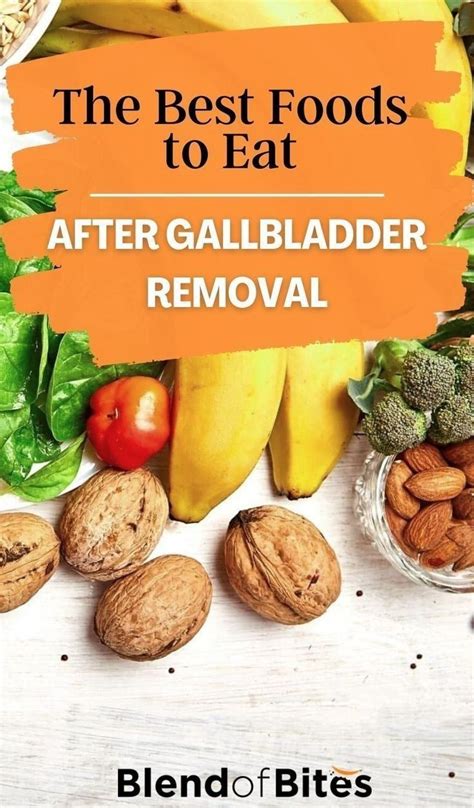
When you're trying to heal or protect your gallbladder, focusing on easily digestible, nutrient-dense foods is key. These are the powerhouses that help reduce inflammation and keep your digestive system running smoothly. Think lean, clean, and green!
- Lean Proteins: Prioritize skinless poultry, fish (especially fatty fish like salmon and cod for omega-3s, but in moderation if fat is an issue), beans, lentils, and tofu. They provide essential amino acids without bogging down your gallbladder.
- *Personal scenario:* "When I first started, I was worried about protein. My go-to was always baked cod with herbs – light, satisfying, and never triggered discomfort."
- Whole Grains: Opt for brown rice, quinoa, oats, and whole-wheat bread. Their fiber content aids digestion and helps move things along, reducing the burden on your system.
- Fruits & Vegetables (Non-Cruciferous Focus): Load up on apples, berries, bananas, leafy greens (spinach, kale), sweet potatoes, carrots, and squash. These are packed with vitamins, minerals, and antioxidants, and are generally well-tolerated.
- Healthy, Minimal Fats (Selected): Small amounts of olive oil, avocado, or nuts can be included, but only if tolerated and in very small portions. The goal is *low* fat, not *no* fat, but listen to your body closely here.
- Skim or Low-Fat Dairy Alternatives: Unsweetened almond milk, oat milk, or low-fat yogurt can be good choices.
- Herbs and Spices: Use liberally to add flavor without fat! Turmeric, ginger, garlic, and mint can even have anti-inflammatory benefits.
- Water: Staying hydrated is crucial for overall digestive health and can help prevent gallstone formation.
The "Fats & Foes" List: What to Avoid (or Limit Strictly) for Gallbladder Health
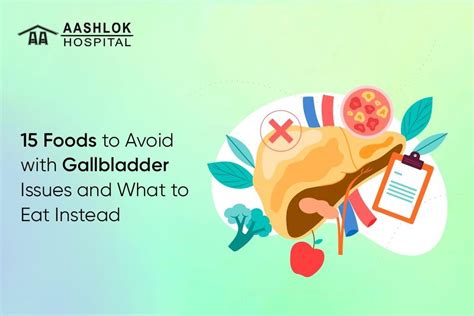
This is where you'll need to be most vigilant. Foods high in unhealthy fats are the primary culprits for triggering gallbladder attacks. Avoiding these is paramount for managing your symptoms and supporting recovery.
- High-Fat Meats & Processed Meats: Think bacon, sausage, fatty cuts of beef or pork, and deli meats. These require significant bile production and can be extremely irritating.
- *Personal scenario:* "I learned the hard way that even a small slice of pepperoni pizza could send me spiraling. Now, I simply avoid all high-fat processed meats entirely."
- Fried Foods: French fries, fried chicken, donuts – anything deep-fried is a major no-go. The fat content is just too high.
- Full-Fat Dairy Products: Whole milk, heavy cream, full-fat cheeses, and ice cream can be problematic due to their high saturated fat content.
- High-Fat Processed Foods & Pastries: Cakes, cookies, pastries, chips, and many packaged snacks are often loaded with unhealthy fats and refined sugars, both of which are tough on the digestive system.
- Certain Raw Vegetables (for some): While generally good, cruciferous vegetables (broccoli, cabbage, cauliflower) can cause gas and bloating for some individuals, which might exacerbate gallbladder discomfort. Introduce them slowly and cooked if you're unsure.
- Spicy Foods: For some, overly spicy foods can trigger digestive upset, including gallbladder pain. Listen to your body.
- Refined Sugars & Artificial Sweeteners: While not directly fat, they can contribute to inflammation and overall digestive stress.
Smart Swaps & Delicious Alternatives for a Gallbladder-Friendly Diet
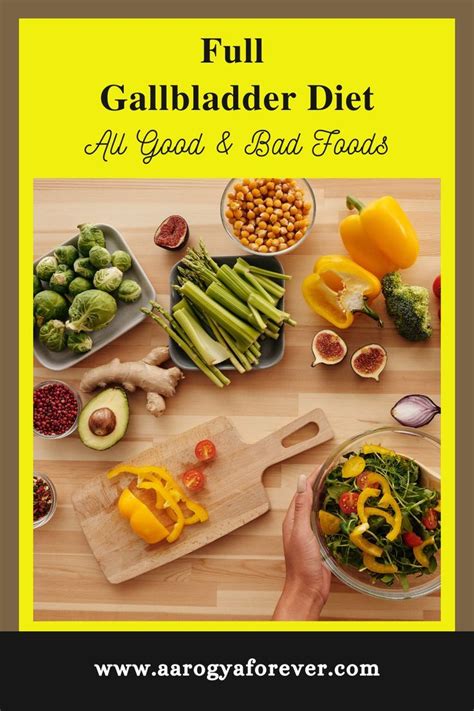
Navigating a new diet doesn't mean sacrificing flavor or feeling deprived. It's about clever substitutions that keep your gallbladder happy without leaving your taste buds bored!
- Swap Butter for Broth/Water: When sautéing vegetables, use a little vegetable broth or water instead of oil or butter.
- Bake, Grill, or Steam Instead of Fry: Cook chicken, fish, and vegetables using healthier methods. Roasted sweet potatoes are a fantastic alternative to fries.
- *Personal scenario:* "My air fryer became my best friend! It allowed me to get that 'crispy' texture on veggies and lean proteins without adding excessive oil."
- Fruit Purees for Oil in Baking: In some baking recipes, you can replace a portion of the oil with applesauce or mashed banana.
- Homemade Dressings: Make your own salad dressings with vinegar, herbs, and a tiny drizzle of olive oil rather than creamy, high-fat store-bought options.
- "Nice" Cream: Blend frozen bananas for a creamy, naturally sweet treat that satisfies ice cream cravings without the dairy or fat.
- Herbal Teas: Sip on peppermint or ginger tea to soothe digestion, instead of relying on caffeinated or sugary beverages.
Beyond the Plate: Lifestyle Habits for Gallbladder Health
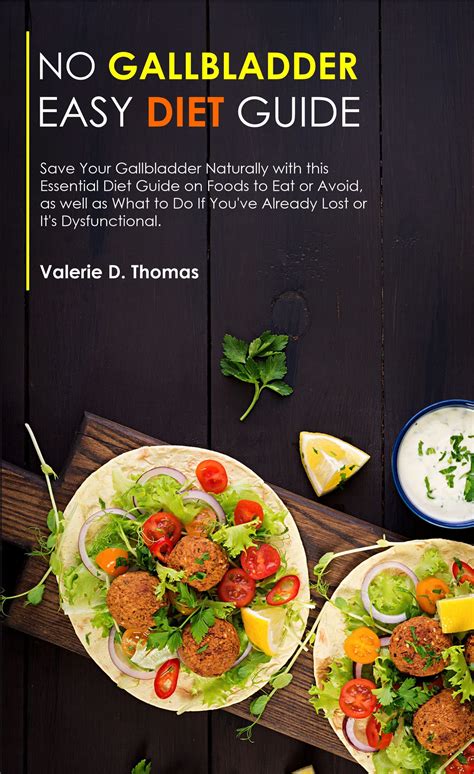
Your diet is crucial, but holistic health involves more than just food. Integrating these lifestyle habits can significantly support your gallbladder and overall well-being.
- Eat Smaller, More Frequent Meals: Instead of three large meals, try 5-6 smaller meals throughout the day. This reduces the burden on your gallbladder, as it doesn't have to release a large amount of bile all at once.
- Stay Hydrated: Water is your best friend. It helps keep bile fluid and reduces the risk of gallstone formation.
- Mindful Eating: Eat slowly, chew your food thoroughly, and pay attention to your body's signals. This aids digestion and can help you identify trigger foods.
- Stress Management: Stress can exacerbate digestive issues. Incorporate relaxation techniques like meditation, yoga, or deep breathing into your daily routine.
- *Subjective Tip:* "I've found that a 10-minute walk after a meal, combined with some deep breaths, really helps settle my stomach and mind."
- Regular, Moderate Exercise: Physical activity promotes healthy digestion and can aid in weight management, both of which are beneficial for gallbladder health. Avoid intense exercise immediately after eating.
Meal Planning & Prep Made Easy for Your Printable Gallbladder Diet
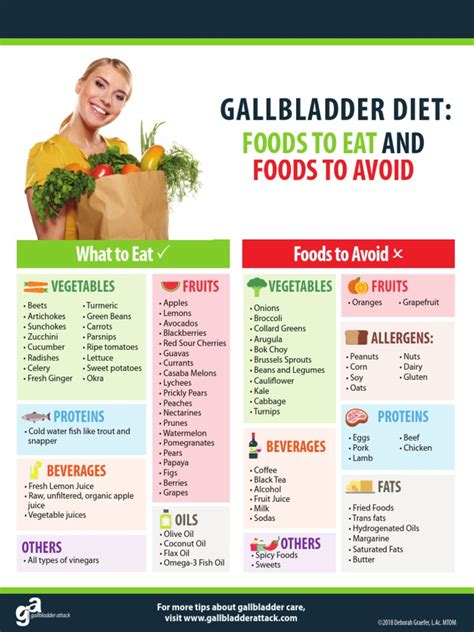
The key to sticking to any diet, especially a restricted one, is preparation. A little planning goes a long way in making your *printable gallbladder diet* journey smooth and sustainable.
- Weekly Meal Outline: Dedicate some time each week to plan out your meals and snacks. This reduces impulse eating and ensures you have gallbladder-friendly options on hand.
- Batch Cooking: Cook larger portions of lean protein (like grilled chicken or lentils) and whole grains at the beginning of the week. This makes quick meals easy to assemble.
- *Personal scenario:* "On Sundays, I always roast a big batch of sweet potatoes and steam some green beans. They last for days and are perfect for adding to meals."
- Smart Snacking: Prepare pre-portioned snacks like apple slices, rice cakes, or a small handful of plain popcorn.
- Label & Store: Store cooked meals in clearly labeled containers in your fridge or freezer for easy grab-and-go options.
- Ingredient Inventory: Keep your pantry stocked with gallbladder-friendly staples (oats, brown rice, canned beans, low-fat broths) so you're never caught off guard.
Navigating Social Settings & Dining Out on Your Gallbladder Diet
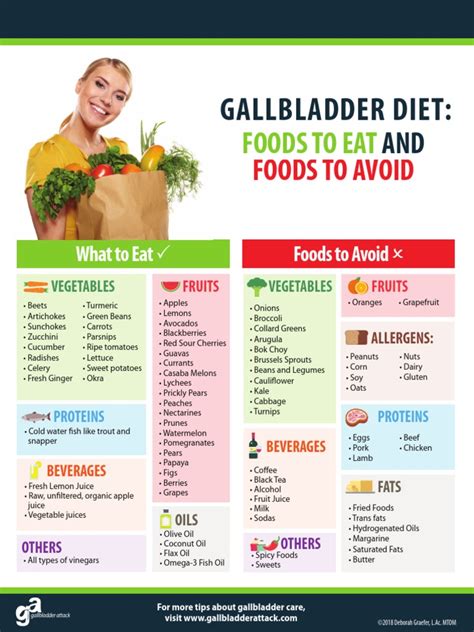
One of the trickiest parts of a new diet is social situations. But with a little forethought and communication, you can still enjoy dining out and gatherings without compromising your health.
- Review Menus Online: Before you go to a restaurant, check their menu online. Identify safe options or dishes that can be easily modified (e.g., grilled fish, steamed vegetables, plain baked potato).
- Communicate with the Server: Don't be afraid to politely explain your dietary needs. Ask for sauces on the side, dishes to be prepared without oil/butter, or for grilled/steamed options.
- *Hypothetical personal scenario:* "I used to be shy about asking, but now I confidently tell them, 'I need something low-fat, so no butter or oil, please.' Most restaurants are very accommodating."
- Choose Wisely: Opt for simple dishes like baked chicken or fish, plain rice, and steamed vegetables. Avoid anything creamy, fried, or loaded with cheese.
- Eat Before You Go (Sometimes): If you're unsure about the food options, eat a small, gallbladder-friendly meal before you leave. This takes the edge off your hunger and reduces temptation.
- Focus on the Company: Remember, social events are about connection, not just food. Enjoy the conversation and company, rather than fixating on what you can't eat.
- Bring Your Own: For potlucks or gatherings with close friends, offer to bring a gallbladder-friendly dish that you know you can eat safely.
Your Essential Printable Gallbladder Diet Checklist
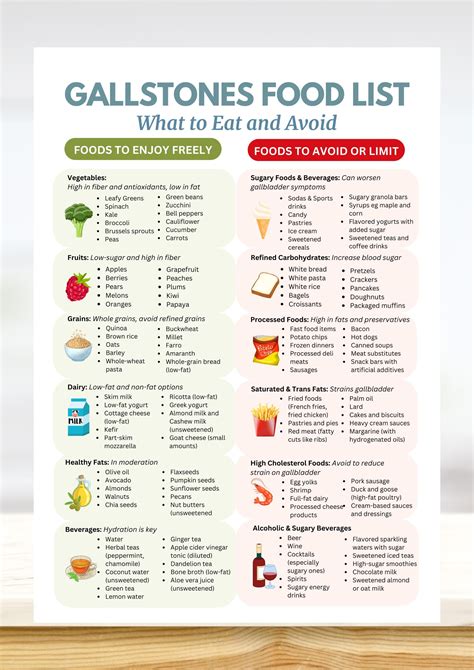
This is the actionable part you can download, print, and keep handy! It’s a simplified overview of what to focus on and what to avoid daily.
✅ DAILY GREEN LIGHT FOODS:
- Lean Proteins (chicken breast, turkey, white fish, beans, lentils, tofu)
- Whole Grains (oats, brown rice, quinoa, whole-wheat bread)
- Plenty of Fruits (apples, bananas, berries, melons, peaches)
- Plenty of Non-Cruciferous Vegetables (leafy greens, carrots, sweet potatoes, squash)
- Skim/Low-Fat Dairy Alternatives (almond milk, oat milk, low-fat yogurt)
- Water & Herbal Teas
⚠️ PROCEED WITH CAUTION (Small amounts if tolerated):
- Healthy Fats (small amounts of olive oil, avocado, nuts)
- Cruciferous Vegetables (broccoli, cabbage, cauliflower – if they cause gas, limit or cook well)
❌ RED LIGHT FOODS (Avoid):
- High-Fat Meats (bacon, sausage, fatty cuts of beef/pork, fried chicken)
- Fried Foods (fries, donuts, anything deep-fried)
- Full-Fat Dairy (whole milk, butter, cream, cheese, ice cream)
- High-Fat Processed Foods (cakes, cookies, chips, pastries)
- Creamy Sauces & Dressings
- Excessive Oils & Ghee
- Overly Spicy Foods (if they cause discomfort)
Tips for Personalizing Your Gallbladder Diet Journey
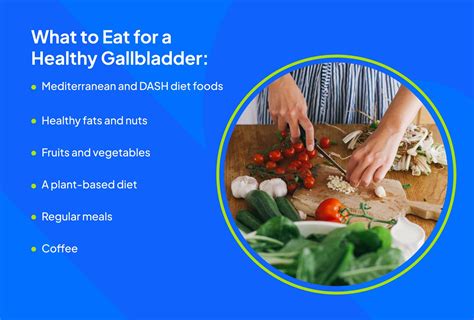
This guide offers a strong foundation, but remember, your body is unique. Personalizing your *printable gallbladder diet* is about tuning into your individual needs.
- Keep a Food Journal: For the first few weeks, note down everything you eat and any symptoms you experience. This is the fastest way to identify your specific trigger foods.
- *Subjective tip:* "I found tracking my food invaluable; it quickly became clear that even a tiny bit of red meat caused issues for me, but salmon was fine."
- Portion Control is Key: Even with healthy fats like olive oil or avocado, moderation is crucial. Too much of a good thing can still be problematic for a sensitive gallbladder.
- Listen to Your Body: This is the most important advice. If a food, even one listed as "friendly," causes you discomfort, reduce or eliminate it. Your body knows best.
- Stay Positive: Dietary changes can be challenging, but focusing on the positive impact on your health and energy levels can make the journey much easier.
- Consult a Professional: Always work with your doctor or a registered dietitian. This guide provides general information, but personalized medical advice is essential.
Common Pitfalls: What to AVOID When Navigating Your Gallbladder Diet
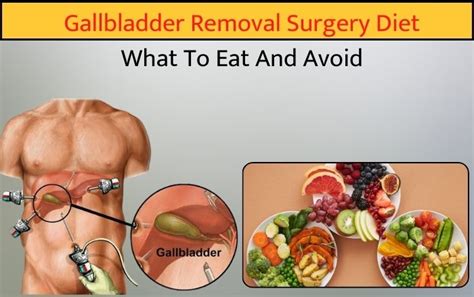
While aiming for a healthier diet, it's easy to fall into certain traps. Being aware of these common mistakes can save you a lot of discomfort.
- Going "No Fat" Instead of "Low Fat": Some people try to eliminate all fats, which isn't sustainable or healthy in the long run. Healthy fats are essential for nutrient absorption and overall health, just in very controlled amounts.
- Ignoring Hydration: Thinking diet is just about food. Dehydration can thicken bile, potentially contributing to gallstone issues. Don’t be like me and forget your water bottle at home on a hot day!
- Relying on Processed "Low-Fat" Foods: Many low-fat packaged foods are high in sugar, artificial ingredients, and refined carbs, which aren't beneficial for gallbladder health or overall well-being. Always read labels carefully.
- Eating Too Quickly or Too Much: Even healthy foods can cause discomfort if you overeat or consume them too fast. Slow down and savor your meals.
- Trying to Reintroduce Trigger Foods Too Soon: Give your gallbladder time to heal and adjust. Reintroduce potentially problematic foods one at a time, in very small amounts, and slowly.
- Neglecting Fiber: Fiber is essential for healthy digestion, but some people reduce it out of fear of gas/bloating. Find your balance with soluble and insoluble fibers that work for you.
Your Journey to Gallbladder Comfort Starts Now!
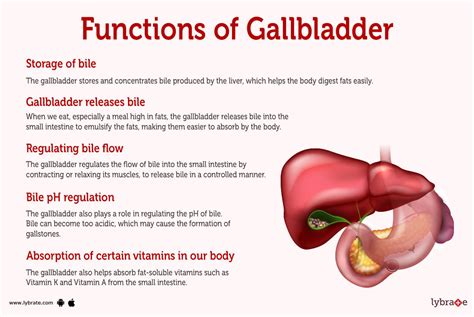
Embarking on a new dietary path for your gallbladder can seem daunting, but it’s truly an empowering step towards better health and comfort. Remember, this isn't about deprivation; it's about making smart, informed choices that support your body. With this *printable gallbladder diet* guide, you have a clear, empathetic roadmap to follow. So, print it out, pin it up, and take control of your well-being. Now, go make your gallbladder—and yourself—feel happier and healthier!
